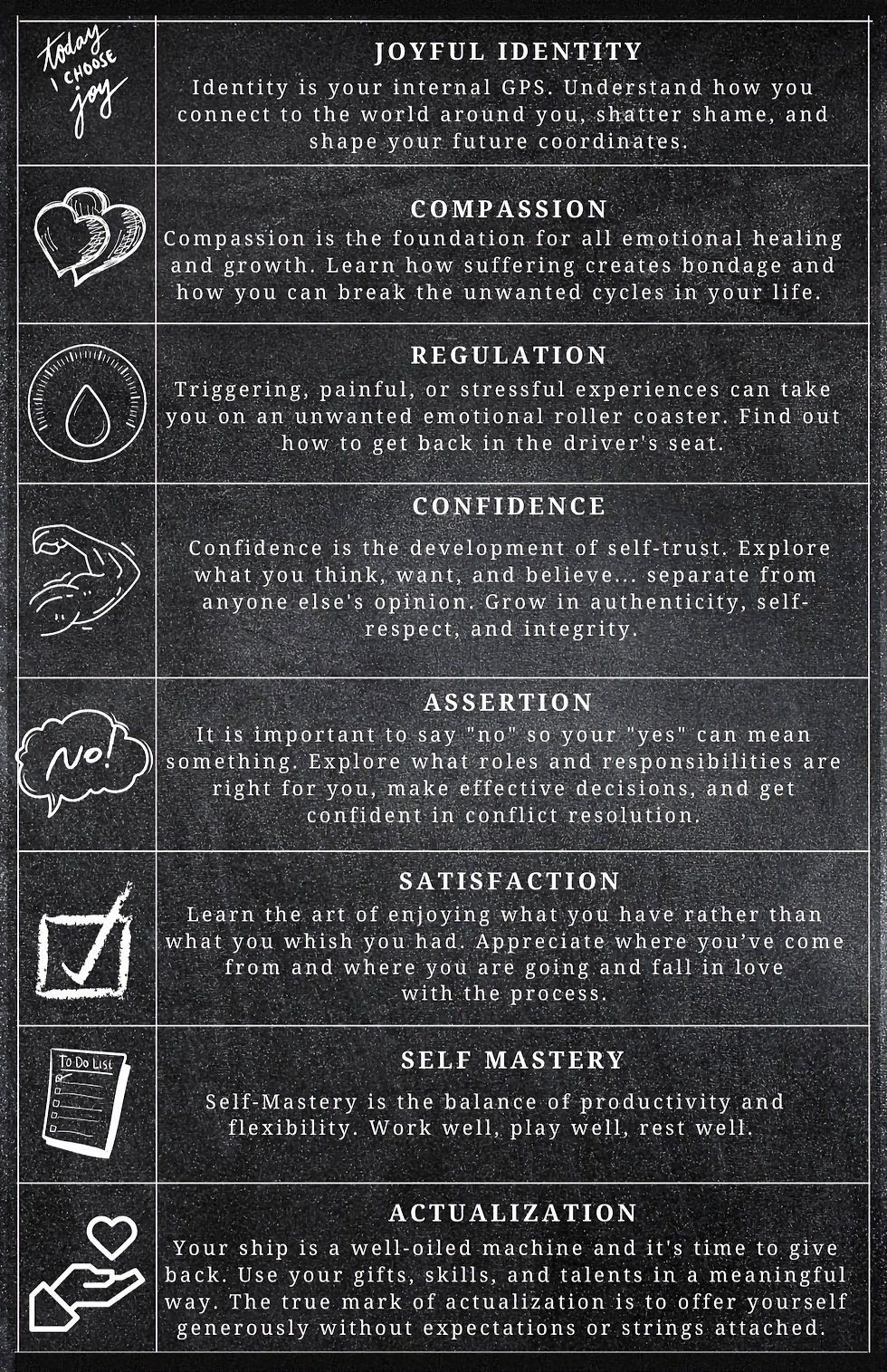Resilience is a Skillset
- Brooke Shoup
- Aug 24, 2024
- 3 min read
Updated: May 15, 2025

5 Factors for Resilience:
Resilience is the ability to overcome adversity. It is responding to stress in a way that allows us to move forward with our lives instead of getting stuck.
Research on resilience shows us that people who overcome adversity well have a few things in common: Resourcefulness, Personal Power, Critical Awareness, Spirituality, and Facing Discomfort. Brene Brown reflects on the history of this research in her book, "The Gifts of Imperfection." The Five Pillars below are a summary of her work.
1. Resourcefulness:
To be resourceful is to be a good problem solver. When adversity strikes, a resourceful person is able to come up with quick, creative, or even out of the box solutions.
2. Personal Power:
Personal power is the degree we are able to turn desire into reality. There are a few things we need in order to feel powerful.
Define what we want
A Route from A to B
Belief that we can do it
Ability to course correct when we hit roadblocks
3. Critical Awareness:
Critical awareness is the practice of questioning the stories we believe around our experiences. Something can be normal, it doesn't mean its good for us. A Critically aware person is able to ask questions about the things they experience and decide for themselves if they agree with it.
Media Messages
Cultural Norms
Things that are rules because "that is how it is done"
Is the information the full story?
One's own beliefs
Familial Norms and Expectations
4. Spirituality:
The research supports that individuals will be more resilient to stress if they believe in a loving, compassionate, and supportive being who connects humanity as a whole.
5. Facing Discomfort:
Those who overcome adversity make choices to face life's discomfort. This is key in a world filled with distractions and addictions. They report allowing themselves to stay present with unpleasant feelings instead of numbing, stuffing them down, or pushing them away. Facing discomfort also means allowing oneself to be challenged in a way that promotes growth.
What Gets in the Way of Resilience?
Stress! Resilience is our capacity to hold and resolve stress. There are two types of stressors: A-Stressors and B-Stressors.
B-Stressors are the typical ideas you may have about stress. The experiences, real or imagined, that negatively impact our wellbeing. They are the bad things that happen to us. Common B-Stressors include things like work stress, strained relationships, heavy load, loss, and other forms of hardship.
A-Stressors are harder to recognize. They are the absence of the things we really need to thrive. Examples include feeling heard, seen, known, loved, and celebrated. These stressors frequently go unacknowledged because we don't always recognize them as needs.
I remember thinking to myself...
Do I really need to feel championed?
If I want to thrive? Yes!
Skills for Resilience
My skills for stress-less living are meant to help you respond to both types of stressors. They give you tools to resolve problems that were created by B-Stressors. They also give you the opportunity to identify and fulfill the needs A-Stressors left behind.
Ideally, we will learn how to work out those blockages in real time through competent supports. In all of the studies on resilience, the number one factor that helps people handle stress better is a supportive community.
Lean Into a Supportive Community
Supportive community anchors us down to withstand the waves of life. They hold up a mirror and help us see ourselves with compassionate, loving eyes. They lend us courage to face our fears and take leaps of faith. Supportive community sees what we are capable of instead of who we used to be. And it accepts us for who we are instead of what we are supposed to do.
If you are craving a community like this, we want to welcome you. We offer a community membership where you can:
Connect with other growth-minded people through the app
Participate in coach-led discussions geared towards skills for resilience
Sign up for 1:1 office hours to receive individual support






.png)
Comments